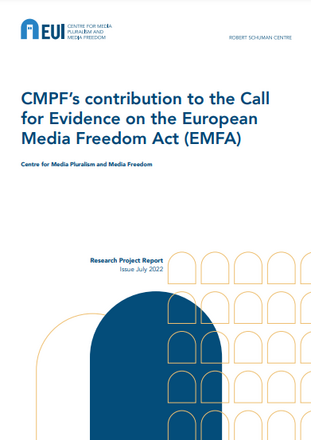
The report recognises that EMFA is an opportunity to establish once again that media freedom, media pluralism and diversity are fundamental pillars for democracy and the rule of law in Europe. Therefore, according to the authors the European Media Freedom Act should:
- Craft a general European definition of media, including the adaptation of the concepts of “editorial responsibility” and “editorial independence” to the digital environment.
- Elaborate a comprehensive and holistic definition of “media pluralism”, including the dimensions of both external and internal pluralism.
- Introduce effective criteria for measuring market trends, and market and audiences’ concentration.
- Set high transparency standards to guarantee the independence from economic and political influence. The criteria and procedures for subsidy or support to the media should be easily accessible.
Transparency is connected to the democratic role of the media. The analysis highlights that EU media markets often lack transparency in several of their components, such as information on media revenues, media audience and media ownership. Therefore, ensuring the enforcement of transparency in the media market through the EMFA can contribute to the protection of media plurality.
Economic threats to media freedom are related to under-financing of journalism, economic safety of journalists and market power. CMPF acknowledges the fact that a healthy media market requires addressing these challenges. The opportunities created by digital innovation should be used to guarantee the possibility of access to a diverse and reliable informational content, which is essential in the public sphere of democracy. The authors believe that the EMFA can help news media resilience by:
a) setting the standards of the MSs’ interventions in financing the media industry;
b) providing a direct EU funding for public interest journalism;
c) supporting the safety of journalists and their economic independence;
d) setting principles to limit media market concentration;
e) sustaining the development of alternative business models and technological empowerment of newsrooms.
At the same time, the Media Freedom Act should establish standards for the allocation of public subsidies to the media and transparency obligations on the public funding of PSMs.
Lastly, the paper suggests that the EMFA could foresee an enhanced role of the media authorities in the broader media sector.
Tags: European policies and legislation Media pluralism Transparency Media ownership Media fundingThe content of this article can be used according to the terms of Creative Commons: Attribution-NonCommercial 4.0 International (CC BY-NC 4.0) . To do so use the the wording "this article was originally published on the Resource Centre on Media Freedom in Europe" including a direct active link to the original article page.

